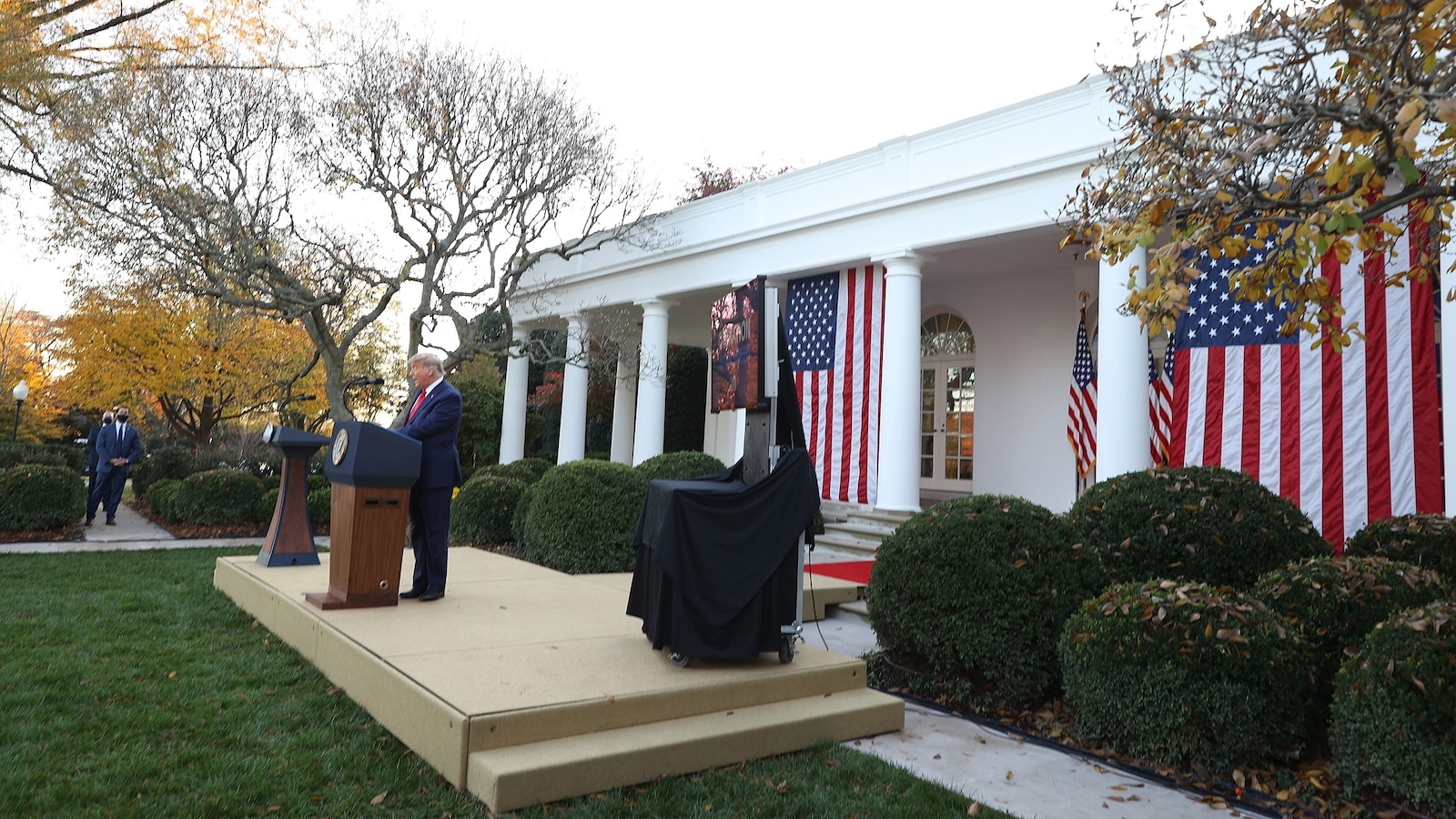President Donald Trump on Wednesday will unveil in the White House Rose Garden what are expected to be broad-based “reciprocal tariffs” on imports as part of his “America First” agenda.
It’s a moment months in the making for the president who has repeatedly billed it as “Liberation Day,” claiming it will free the U.S. from dependence on foreign goods and saying “we’re going to be getting back a lot of the wealth that we so foolishly gave up to other countries.”
“April 2, 2025, will go down as one of the most important days in modern American history,” White House press secretary Karoline Leavitt told reporters on Tuesday.
But it’s a serious political gamble for Trump, who made his way back to the White House in no small part because of his promise to better the economy.
Some economists, though, have raised concerns his moves could cause the economy to slide into a recession and markets seesawed ahead of Wednesday’s announcement, slated for 4 p.m. ET, after the markets end trading.

In this Nov. 13, 2020, file photo, President Donald Trump speaks in the Rose Garden at the White House in Washington, D.C.
Tasos Katopodis/Getty Images, FILE
The White House has been mum on details ahead of Wednesday’s announcement, only confirming that the tariffs will go into effect immediately upon being announced.
Some options debated in recent weeks, ABC News Senior White House Correspondent Selina Wang reported, were a 20% flat tariff rate on all imports; different tariff levels for each country based on their levies on U.S. products; or tariffs on about 15% of countries with the largest trade imbalances with the U.S.
Trump was still meeting with his tariff team on Tuesday to finalize the details, Leavitt said, “perfecting” the policy “to make sure this is a perfect deal for the American people and the American worker.”
Since his inauguration, Trump has implemented levies on specific products, including steel and aluminum. He’s also put into place some tariffs on goods from China, Canada and Mexico.
The actions have strained relations with Canada and Mexico, two key allies and neighbors. Prime Minister Mark Carney said last week the U.S. and Canada’s deep relationship on economic, security and military issues was effectively over.
Canada has vowed retaliatory tariffs and Mexico said it will give its response later this week. The European Union, too, said it has a “strong plan to retaliate.”
But Trump and administration officials are plowing full steam ahead, arguing America’s been unfairly “ripped off” by other nations for years and it’s time for reciprocity.
“It’s simple: if you make your product in America, you will pay no tariffs,” Leavitt said on Tuesday.

Cargo trucks head towards U.S. at the Otay Commercial crossing in Tijuana, Baja California state, Mexico, Mar. 27, 2025.
Guillermo Arias/AFP via Getty Images
The economy was the top issue for voters in the 2024 presidential election, with Americans casting blame on President Joe Biden for high prices and Trump promising to bring families financial relief.
The administration has painted tariffs as a panacea for the economy writ large, arguing any pain experienced in the short term will be offset by what they predict will be major boosts in manufacturing, job growth and government revenue.
But it’s unclear how much leeway the public is willing to give Trump to get past what he has called “a little disturbance.”
Already, little more than two months into Trump’s second term, polls show his handling of the economy is being met with pushback.
An Associated Press-NORC Center for Public Affairs Research survey published on Monday found a majority of Americans (58%) disapprove of how Trump has been handling the economy.
On his protectionist trade negotiations with other nations, specifically, 60% of Americans said they disapproved of his approach so far. It was his weakest issue in the poll among Republicans.
Trump’s GOP allies on Capitol Hill have say they’re placing trust in the president, but acknowledged some uncertainty to start.
“It may be rocky in the beginning but I think this will make sense for Americans and it will help all Americans,” House Speaker Mike Johnson said at his weekly press conference with other members of Republican leadership.
“You’re going to see prices shift,” Rep. Rich McCormick, a Georgia Republican, told ABC News Correspondent Jay O’Brien. “We’re accountable to the American people. We represent them, if they’re speaking loud enough … I think the president has been very good at reacting to the public.”

Speaker of the House Mike Johnson takes questions on tariffs while meeting with reporters at a news conference, at the Capitol, in Washington, April 1, 2025.
J. Scott Applewhite/AP
Senate Democrats were planning to try to force a vote aimed at curtailing Trump’s authorities to impose levies on Canada.
Minority Leader Chuck Schumer, in a press conference alongside other Democrats on Tuesday, slammed Trump’s recent comments that he “couldn’t care less” if foreign automakers raise prices due to tariffs — levies that are also going into effect on Wednesday.
“America you hear that? Donald Trump says he couldn’t care less if you pay more,” Schumer said.
“The president has justified the imposition of these tariffs on, in my view, a made-up emergency,” said Sen. Tim Kaine, a Virginia Democrat.

